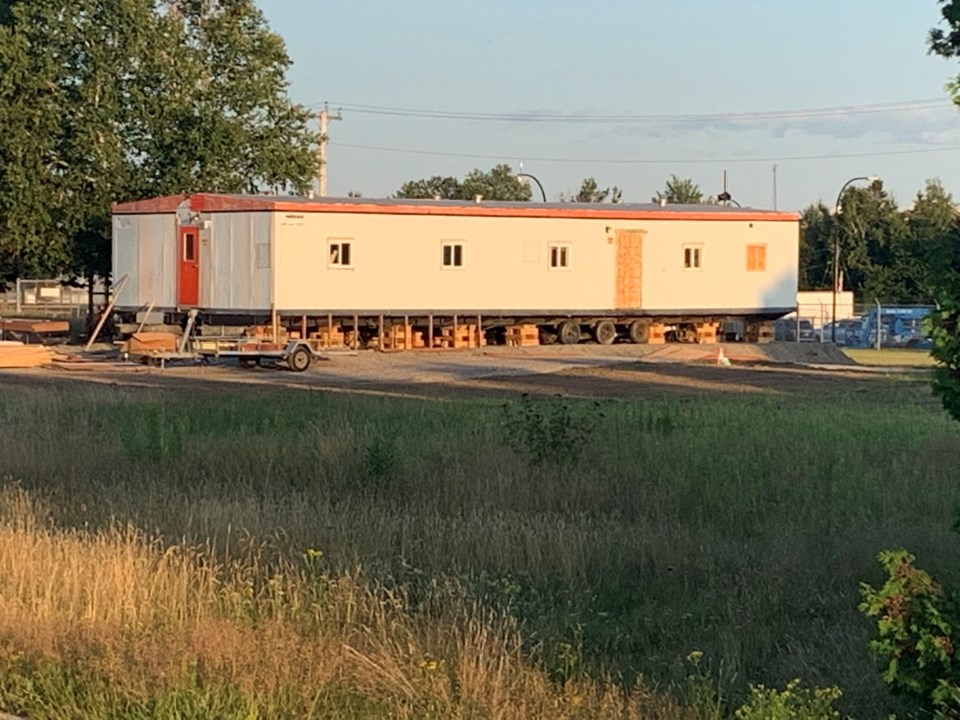The search is underway for a new partner to operate North Bay's low-barrier shelter.
Last week, Nipissing Mental Health Housing and Support Services (NMHHSS) announced, as of May 1, it would no longer serve as the operator of the low-barrier shelter.
See related story: Social agency pulls support after syringe stabbing
NMHHSS has been working in partnership with the District of Nipissing Social Services Administration Board (DNSSAB) in running the shelter, which over the last year has been located at various locations, including the YMCA and Pete Palangio Arena, and is presently located on the former OPP property on Chippewa Street West.
See also: Old OPP building to become homeless shelter
NMHHSS is responsible for day-to-day operations, staffing the facility, ensuring the well-being of clients, and providing security. Day programming has also been offered for clients inside the Gateway House.
Although the announcement came immediately following an incident in which a client stabbed a shelter employee with a syringe, NMHHSS CEO Mary Davis tells BayToday the decision to withdraw services had been developing for some time. While remaining mindful of the victim's privacy, Davis shares she had been in contact with the employee, who is recovering.
"Kudos to our staff for stepping up and doing this when it needed to be done," on the involvement of NMHHSS with the shelter, Davis says. "We've done a remarkable job doing this but it's time now for a structure and a permanency to come into place and that's not us."
Mark King, Chair of DNSSAB says there is no animosity between organizations.
"They've been good. There are no hard feelings at all," King observes. "We had an arrangement with NMHHSS. Unfortunately, they decided that they couldn't continue providing the service at the low-barrier shelter."
Both Davis and King agree there are organizations out there that are equipped to fill the void on the operations side. King says discussions are ongoing with at least one possible service provider.
However, "If we are unable to find that operator, we might have to establish our own division of DNSSAB that would operate that complete facility," King advises. But, he warns such an arrangement could spread the DNSSAB "too thin."
Asked why NMHHSS took on the operation of the shelter in the first place, Davis explains the organization came forward because it wanted to help.
"We were running the warming centre last year and then the pandemic happened," she says. "We were asked to step up and operate the low-barrier shelter because we had the staff and resources to do that. So we did."
Davis says the work of the NMHHSS board and staff has been exemplary throughout the pandemic and under trying circumstances. "We ran this shelter and it has required a tonne of resources and has really put a strain on our organization. And, it really doesn't fit in our mandate, which is to provide long-term treatment and services — and that's not conducive with the shelter."
King agreed with that assessment. "Some of their senior management, that's all they did was spend time trying to keep that low-barrier shelter in shape. They have other facilities that they're trying to deal with at the same time and it became too onerous."
He adds, "It's extremely expensive to operate the low-barrier shelter, without question, the costs are extreme," says King, estimating they run easily into the hundreds of thousands per month.
King says the state of the economy over the last few years has "greatly contributed to the complexity," of social issues, and says he's in favour of universal basic income.
"You have large numbers of people on the street that just can't look after themselves," says King. "Closing the Ontario Hospital on Highway 11 North was a huge mistake."
And: Homeless survey shows staggering increase
The goal of the program is to increase transitional housing with supports in place at the Chippewa Street West site once construction is complete in the modular housing section.
"We really hope to get to the point where the low-barrier shelter is not used as heavily as it is now and we're able to put people in transitional housing," he says, which will, ideally, reduce the costs associated with operating a low-barrier shelter.
Asked if the program will continue despite the hiccups, King responds, "The province will look at this, once it's completed, and we show success in placing people, and getting people off the street, we have definitely made an impact on the downtown core."



